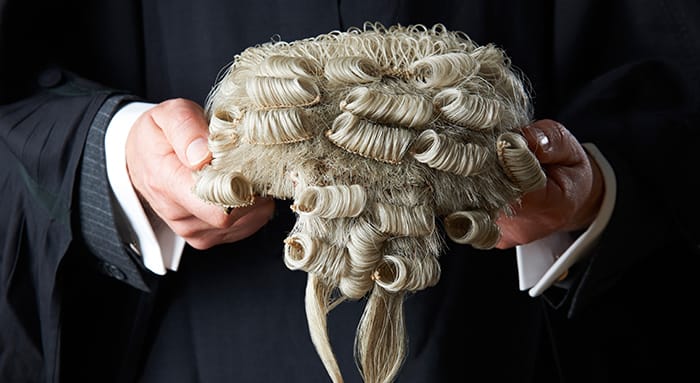Comments include male barristers discussing which female colleagues they ‘wanted to shag’, report finds

A “culture of fear” around reporting bullying, harassment or discrimination exists at the bar, according to a new report by the Association of Women Barristers (AWB).
According to the report, ‘In the age of ‘Us Too?’ Moving towards a zero-tolerance attitude to harassment and bullying at the bar’, “many barristers would be afraid to speak out against discrimination, harassment or bullying due to fear that to do so would negatively impact upon their careers — or that they could be ‘victimised’ by those more senior or their peers as a result.”
Also hindering women from coming forward is the “so-called gentlemanly culture” at the bar, where it is inappropriate to challenge or report bad behaviour by another barrister. Such behaviour includes “comments being made by male barristers about the appearance of female barristers and discussing which female barristers they ‘wanted to shag’”, the report claims.
In addition to the bad behaviour that “still abounds” within robing rooms and bar messes, female barristers are often excluded from conversations about cases, particularly in multi-counsel cases, where they can find themselves “‘talked over’ or ignored by male co-counsel”.
Such discrimination is also seen among male solicitors, who can “overlook” women when distributing leading briefs. The report, which was co-authored by AWB chair Lynne Townley and Judge Kaly Kaul QC, says:
“For example, a female barrister who quite properly chooses to decline an invitation to go for a drink with an instructing solicitor may receive no further briefs from that solicitor.”
This can lead to a gender imbalance particularly in specialist areas, as seen in the Employment Appeal Tribunal, where “the vast majority of those appearing before [judges] as leading counsel were men”.
The report, based on a roundtable discussion between leading practitioners, also states that “old fashioned views” continue to permeate the bar, which expect female barristers to be “charming, funny and feminine”. Those who are seen as having a “full on personality” are instead branded negatively, as being “aggressive” or “strident”.
Another contributing factor to the power imbalance among barristers is inadequate facilities for women in court centres. “We are concerned about the fact that there are sometimes no private facilities available at certain court centres where a woman who is breast-feeding can extract and dispose of breast milk. One participant found herself having to use a conference room for this purpose — but the door didn’t lock”, the report states.
“The failure to provide for these most basic of needs can lead to feelings of exclusion and feelings of ‘not belonging’ at the bar,” it adds.
Among the recommendations the AWB puts forward to tackle harassment and bullying at the bar, it suggests that chambers should introduce greater flexible-working policies on maternity leave and clerking regimes tailored to barristers juggling family commitments.
Additionally, the AWB calls for more training for judges and barristers on bullying, harassment, unconscious bias and diversity, as well as increased support for victims, such as a counselling hotline.
Comments on this article are now closed.
